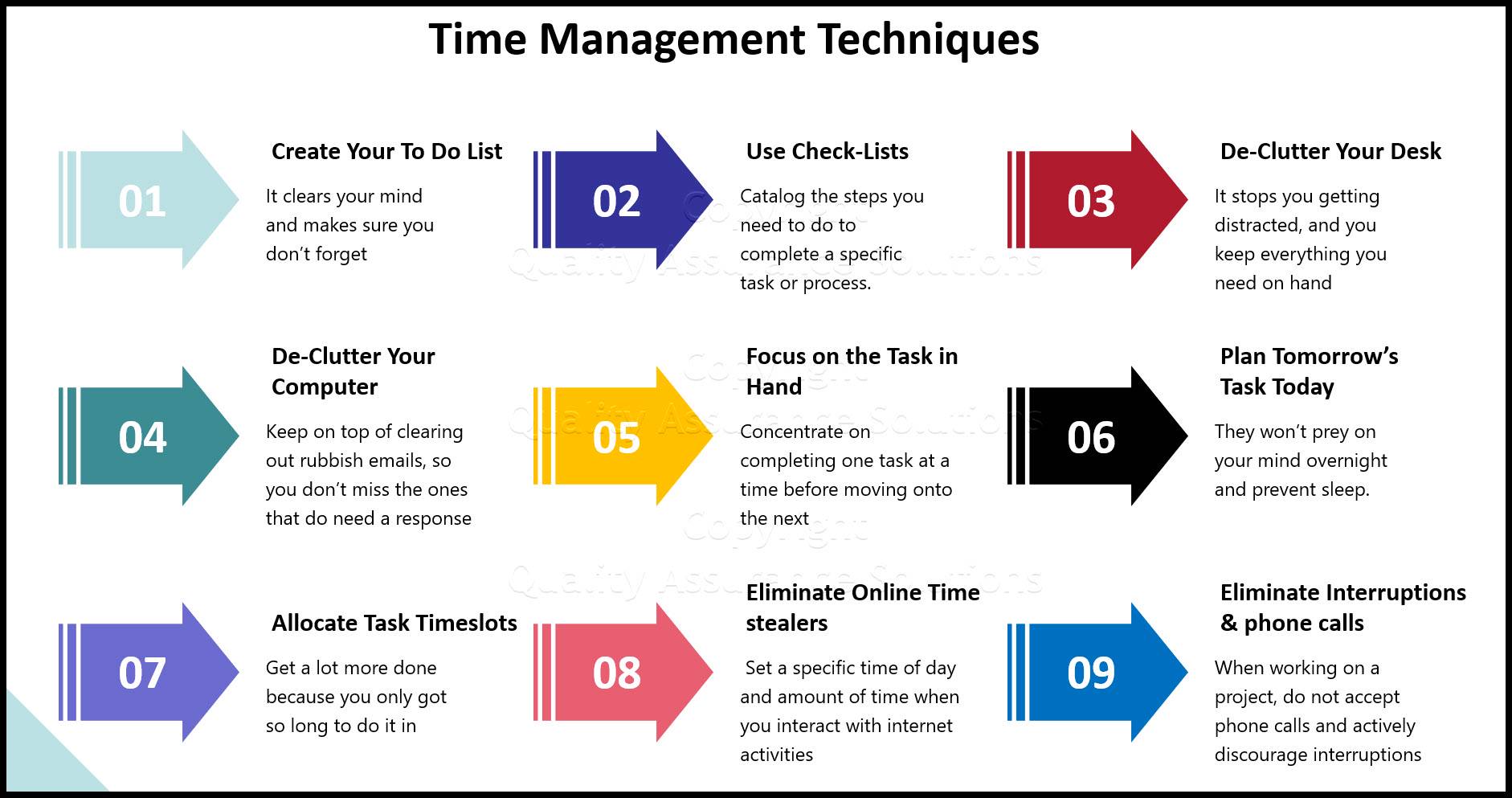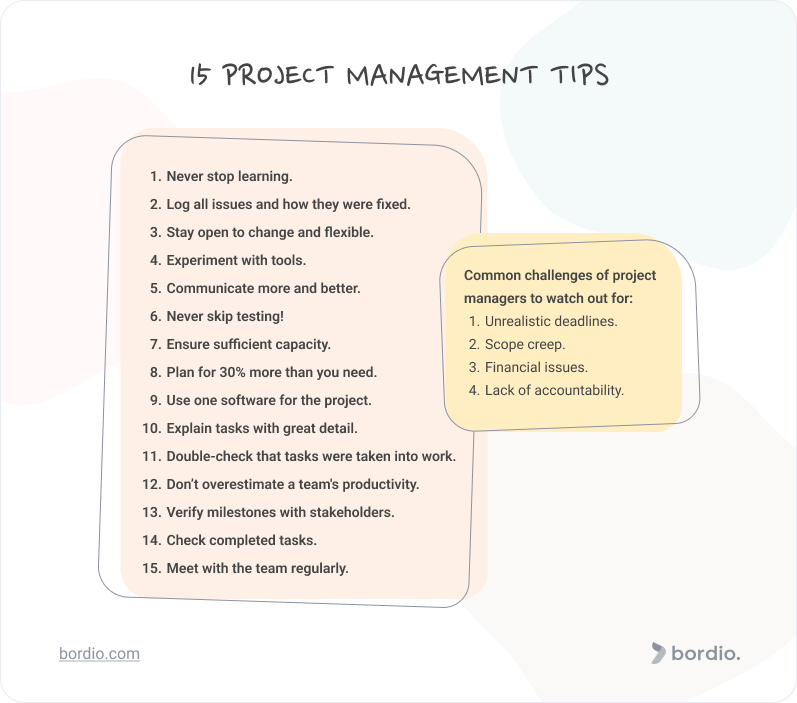
Project Management Tips for Completing Tasks on Time
In a world where business moves at lightning speed, managing a project to successful completion can often feel like trying to catch a greased pig – it’s slippery, unpredictable, and does not want to be caught. Yet, the ability to complete tasks on time is a skill that separates the best project managers from the rest. Timely task completion is not only about keeping the train on the tracks but also about ensuring each carriage reaches its destination without unnecessary hiccups.
Here are some seasoned tips to help you manage your projects with the finesse of a seasoned conductor. By the end of this, you’ll be well on your way to becoming the maestro of time management in your industry.
Understand the Scope Crystal Clear
It all begins with a clear understanding of the project’s scope. You must know what’s expected—every detail, every deliverable. If you don’t have a clear picture of what “done” looks like, how will you ever know if you’ve arrived? Clarify this with stakeholders, team members, and, most importantly, with yourself. A well-defined scope is the bedrock of timely project management.
Break It Down Now
Ah, the art of breaking things down! Big tasks can be daunting, and looking at a colossal, monolithic project can kill motivation. Cut it up like a master chef slicing a gourmet dish. When tasks are bite-sized, they are more manageable, easier to assign, and less overwhelming. This approach not only makes things clearer for your team but also allows for better tracking of progress.
Plan Like a Pro
Failing to plan is planning to fail, they say, and they’re absolutely right. Create a roadmap, a timeline that walks you through the lifecycle of the project. But remember, be realistic. Consider potential obstacles and factor in some buffers. Life is full of surprises, and you need a plan that’s robust enough to handle interruptions without toppling over at the first gust of wind.
Equip Your Team for Success
Your team is your greatest asset, and like any valuable asset, they need the right tools to get the job done. Ensure everyone has been trained and provided with the necessary resources. Regularly check in to ensure they’re not encountering any roadblocks and offer your support. A harmonious team with the right tools is like a well-oiled machine, churning out tasks on time.
Communication Is Key
Effective communication is the lifeline of project management. Keep everyone in the loop with regular updates, and encourage an environment where questions and concerns can be raised freely. One misunderstood email or missed message can lead to project delays, so establish robust communication channels and protocols.
Prioritize Like Your Project Depends on It (Because It Does!)
Not all tasks are created equal. Prioritize! Tackle important tasks first or those with the nearest deadlines. Prioritization prevents the team from getting sidetracked by less critical tasks. It’s like navigation; you’re constantly correcting the course to ensure you’re heading towards the most important destination first.
Monitor and Control
As much as we’d all like a “set it and forget it” approach, that just won’t fly in project management. Be proactive in monitoring the progress of tasks. Use tools and software to keep track of what’s going on and intervene before a delay becomes a disaster. Control the pace and direction of the project like a captain at the helm of a ship.
Be Flexible and Adaptive
Even with the most meticulous planning, things can go awry. Be flexible and ready to adjust the plan when necessary. Adaptability is a vital skill in project management, as it allows for responsive and dynamic problem-solving. Embrace change and be prepared to steer the project efficiently through turbulent waters.
Reward and Recognize
A happy team is a productive team. Don’t forget to acknowledge the hard work your team puts in. Recognition and rewards motivate and inspire, driving your team to continue delivering tasks on time. It’s like fuel for their productivity engine; don’t run on empty.
Conduct Post-Mortems
After the project is finished, take time to reflect. What worked? What didn’t? Conduct a post-mortem meeting to dissect the life of your project. It’s a fantastic opportunity for learning and growth, ensuring that the next project will be managed even more effectively.
Using the Right Tools
One cannot overstate the importance of leveraging the proper project management tools. From simple to-do lists to integrated project management software suits, tools can provide the necessary oversight and control to help you manage time like a pro. They help with planning, execution, monitoring, and closing tasks. Choose ones that fit the scale of your project and the style of your team’s work.
Embrace the Power of “No”
Learning to say “no” can be a superpower. Sometimes, stakeholders or team members will ask for changes or additions that may wreak havoc on your timeline. If these requests conflict with the project’s goals or timeline, it’s okay to push back, provided you can offer an explanation. “No” can be a protective spell for your project’s on-time completion.
Final Thoughts

Completing tasks on time is not rocket science; it’s a blend of good planning, clear communication, strong leadership, and strategic execution. By understanding the scope, breaking down tasks, planning with precision, empowering your team, emphasizing communication, prioritizing ruthlessly, monitoring progress, staying flexible, recognizing effort, and learning from each experience, you can guide your projects to the finish line on time, each time.
Remember, project management is both an art and a science, and each project provides an opportunity to refine your skills further. With these tips firmly in hand, you’re equipped to tackle the challenges ahead and emerge as a wizard of on-time project delivery. Let the magic begin!